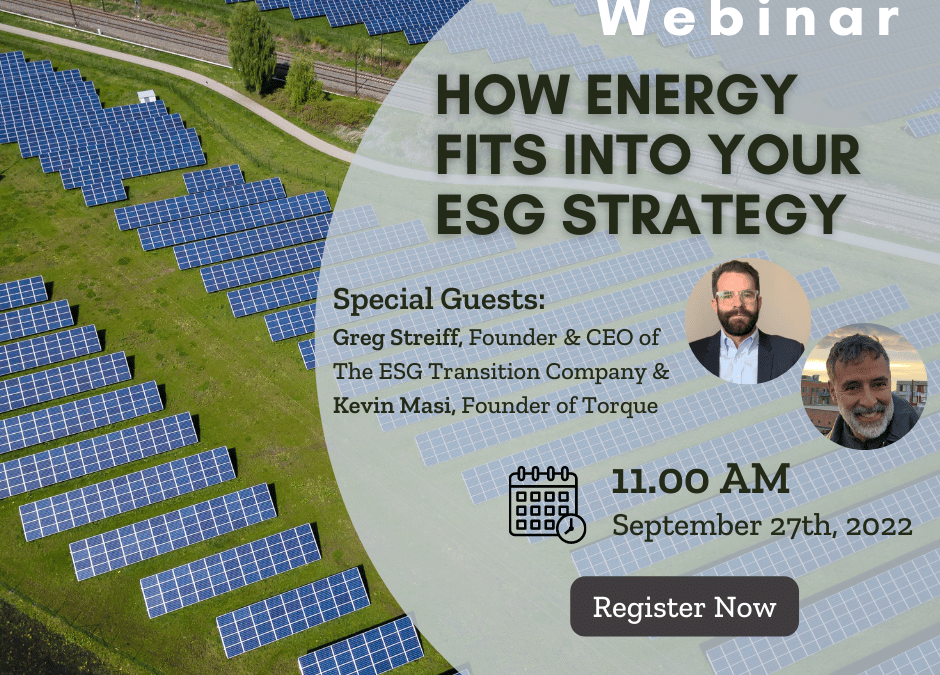Consumer and capital market pressure are driving most companies to develop Environmental, Social, & Governance (ESG) strategies. Within the Environmental side of ESG, energy plays a critical role in decarbonization. Impacts are measured across three categories of emissions:
Scope 1 = greenhouse gas emissions resulting directly from business operations. These include natural gas burning furnaces, fossil fuel-powered transportation, or carbon-based byproducts from manufacturing processes as in the cement industry, to name a few.
Scope 2 = greenhouse gas emissions resulting from electricity generation that is consumed from the local utility grid
Scope 3 = greenhouse gas emissions resulting from the upstream supply chain or the downstream use of a product by customers. Learn how leading companies are developing energy strategies within their broader ESG strategies to achieve their goals and many other operational benefits.

Kevin Masi
Kevin grew up in a real estate family business, so it was more than natural to focus his marketing company, Torque Digital, on the industry. Today their work includes branding and digital marketing for commercial office, multi-family, mixed use and other types of properties, as well as real estate corporate brand development.
Greg Streiff
Greg started his career covering the energy and power sector as an investment banker at Merrill Lynch. With a passion for environmental issues, he went on to work for companies focused on sustainability and the energy transition. He founded The ESG Transition Co. in 2021 with the intent of helping, often underserved, small and midsize businesses achieve their environmental/ethical goals and make the world a more sustainable place.
